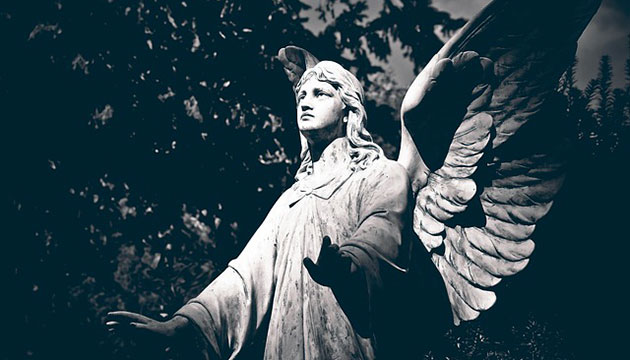My father died when I was only 10 so I spent many an All Saints Day at the old Manila North Cemetery where he was buried. This was in the 1950s before memorial parks became popular. For days before November 1, my siblings and I would clean up the grave site, repaint the tombstone white, arrange flowering pots around the grave and polish the marble epitaph.
November 1 was called Todos los Santos then or Araw ng mga Patay (Day of the Dead). Today this holiday is commonly called Undas or Undras from the Spanish word honra meaning “honour” since this is a day for honouring the dead.
Although Undas is a sombre occasion to reflect on the afterlife and remember departed loved ones, it is also a festive occasion as families and friends troop to the cemeteries with flowers, candles, food and drinks for a day of celebrating the departed. Traffic is usually horrendous and the cost of fresh flowers go up 500 times that day with the white fragrant azucena as a favorite.
Our family usually goes to the cemetery after lunch with baskets of food, flowers and candles, umbrellas and folding chairs. Because public toilets in public cemeteries were notoriously horrid, we bring fruits to quench our thirst rather than liquids. Luckily, November is lanzones and dalandan season so we bring lots of those. The native delicacy usually served in Laguna on this day is sinukmani, a glutinous rice cake similar to what they call biko in Manila. We bring this instead of sandwiches. We also bring boiled peanuts and corn on the cob which are filling but do not make one thirsty. We always say the rosary as soon as we get there because as the crowd gets bigger by the hour, the place begins to look and sound like a sprawling picnic park of merrymakers. Every grave site is surrounded by people who are eating, drinking, chatting or fanning themselves while listening to music on their portable radios. Their children would be collecting candle wax drippings and having a contest as to who could make the biggest ball of wax by the end of the day.
Because the majority of Filipinos are Catholic, the observance of Todos Los Santos or All Saints Day has been part of the Philippine religious tradition. It is not just for commemorating departed loved ones; it’s also a time for family reunions. Those working in the cities and abroad return to their hometowns in the provinces to join the family on the cemetery visit. People go to the cemeteries to bond, reminisce and chat. Some play card games or gamble to pass the time. Others go there to feast and party with guitars, stereos and lots of food to bring cheer to an otherwise sad occasion. Many spend the day and night holding reunions at the grave sites, playing games and music and feasting. In some public cemeteries, city officials have had to ban loudspeakers, karaoke singing, loud radios and even decks of cards from cemeteries to show some respect for the dead and those who were still in mourning.
We usually stay until after dark because that is when the cemetery turns eerily magical like a sea of a thousand flickering candles illuminating the darkening tombs. For some, their vigil usually lasts throughout the night. The following day, November 2, is All Souls Day. This is mainly a church event when prayers and Masses for the dead are offered. And tombs are blessed by the priest, by request, for a donation for church upkeep.
A tradition on the night of November 1 is called pangangaluluwa (from the word kaluluwa meaning souls). As soon as it gets dark, groups of singers go from house to house singing mournful songs asking for prayers to bring them to heaven from the purgatory where they had suffered long enough. They get rewarded with sinukmani wrapped in banana leaves.
In the town of Pila, prominent families have tombs in the church itself. After 10 years in the Manila North Cemetery, my father’s bones were moved to the Catholic church of Pila where his parents were buried. The All Saints Day observance in a Catholic church is very different from the mass movement of multitudes to cemeteries and fiesta-like celebrations we experienced in the Manila North Cemetery.
There were only a few grave sites inside the Pila Catholic church and most families visiting them know each other, many of them are even related. So the atmosphere is more like a somber family reunion instead of a carnival. There is no eating or drinking in the church, only candles, flowers, prayers and quiet conversations. Photos of the departed, in happier times, adorn the graves. People go back and forth all day from their nearby homes. There are no night vigils. They go home at dusk to eat and await the pangangaluluwa at night. While waiting for the singers, the family gathers around to listen to stories about the departed loved ones. The older kids scare each other with ghost stories whispering to younger kids, ‘I smell candles burning. Can you smell it?” Or “Where’s that flower smell coming from?” Until a small kid cries from fright and all the kids are sent to bed. But nobody wants to sleep alone so they all sleep under a big mosquito net, with a light on all night. Only the departed gets to sleep in peace that night.



